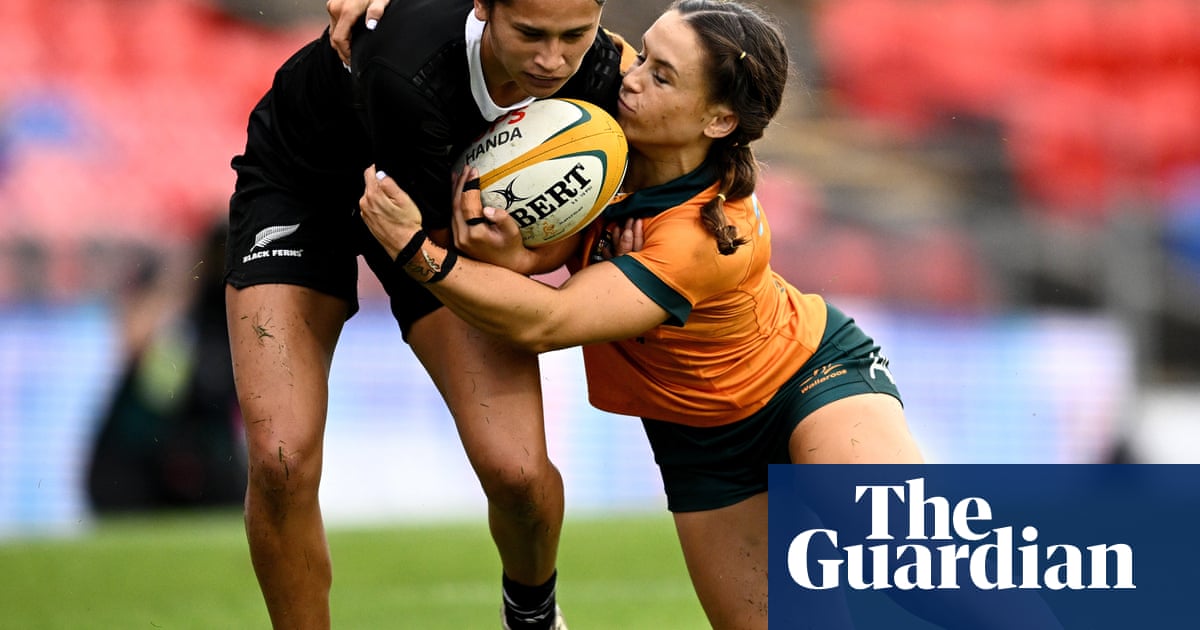With a dismal 0-27 record against New Zealand –the most recent a 62-0blackout in Brisbane last year – breaking the Black Ferns hoodoo was always going to be a tough ask for the Wallaroos. And so it proved, as Australia’s women’s side were dealt a reality check ahead of the Rugby World Cup in August, crashing to a 38-12 defeat in their Pacific Four Series opener.
Even against the champions in six of the past seven World Cups, the Wallaroos went into this Test at McDonald Jones Stadium in Newcastle with their tails up. Last week, theyput Fijiana to the sword 43-7 in Suvafor a fourth straight victory. It lifted their world ranking to No 6 and got them dreaming of a semi-final at the World Cup in England.
Coach Jo Yapp has been reinforcing her 15-a-side ranks with stars from the successful sevens program. Although Tegan and Maddison Levi, Bella Nasser, Kahli Henwood and Sariah Paki this week gave up their quest to make the World Cup squad, Yapp promoted Olympians Charlotte Caslick and Tia Hinds to the run-on side in this Test.
Yet the gulf between New Zealand, the tier one powerhouses, and Australia, the tier two challengers, was apparent from the get-go. Before kick-off they met the Ko Uhia Mai in boomerang formation and sure enough their defensive line stayed bent all half.
With star centres Maya Stewart and Bienne Terita injured, the Wallaroos were dominating possession yet consistently losing territory as the Black Ferns’ line speed swallowed all their attacking space. It rattled the home side and they rashly quick tapped on their own line instead of kicking out of trouble. The New Zealanders swiftly punished the petulance, winger Ayesha Leti-I’iga scooting away to make it 7-0.
In the 26th minute the back-pedalling allowed Leti-I’iga to snipe off the ruck and score again. It left the Wallaroos 14-0 down inside half an hour. Under siege, they rallied. Pig-tailed winger Desiree Miller flew to win back a stray kick for touch. Hinds torpedoed a kick into enemy territory. Caslick forced a turnover. For a few thrilling minutes the Wallaroos threw caution to the wind in a desperate bid to turn the tide.
But the Black Ferns calmly weathered the storm then thundered downfield at speed. When their powerful forwards piled in like jackals, the black mass swallowed all gold jerseys. Maia Joseph scooped up the ball and spat it in a long arc to Braxton Sorensen-McGee on the wing to score although replays showed a knock-on before touchdown.
The Australian refused to sulk, even when Black Ferns prop Chryss Viliko crashed over two minutes after halftime to blow the scoreline out to 26-zip. Instead they went to their most potent weapon: the rolling maul. In the 46th minute they set it in motion, rolling into the red zone before a brilliant lineout put prop Eva Karapani over.
Having landed a punch on the Black Ferns at last, the Wallaroos upped their intensity. Yapp had brought her Sevens stars in hoping their experience regularly vanquishing Kiwis in Sevens competition might smash the hoodoo in 15s too. For a time it looked to be working. Twice in two minutes, Caslick broke the line and almost ran away.
Sign up toThe Breakdown
The latest rugby union news and analysis, plus all the week's action reviewed
after newsletter promotion
When centre Georgina Friedrichs got a lunging fingertip on a kick chase, the whiff of an upset was back on the breeze. Alas, referee Clara Munarini disallowed the try. It was a cruel blow but again the Wallaroos kept their chins up. Four minutes later, their rolling maul set up Ashley Marsters’ snipe to make it 26-12 with 20 minutes to go.
But the rearguard effort had sapped the Australians and the Black Ferns recovered, breaking the Wallaroos ranks with a breathtaking passage of play that sent Sylvia Brunt stepping through the wreckage to score the winning five-pointer in the corner. Sorensen-McGee’s late long range second try was the final nail in the golden coffin.
The 26-point defeat was decisive but the Wallaroos will take plenty from this game. They held the Black Ferns to 12-all in the second half and with the scrubbing of Braxton Sorensen-McGee’s dubious first try and the addition of what looked to be Friedrich’s legitimate touchdown the final score might’ve been much closer.
“We have to start the game as we’re finishing,” said Wallaroos hooker Ash Marsters. Captain Siokapesi PaluPalu concurred. “Had we come out in the first half with the intent we showed in the second, we probably would’ve got a very different result. It’s all about intent and fire, body language and energy. We’ll bring all that next week.”
